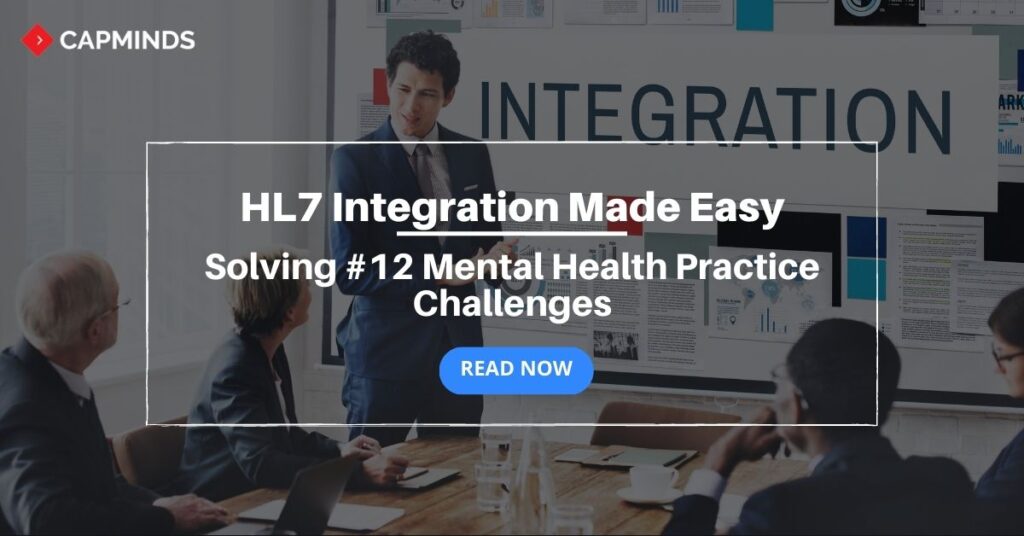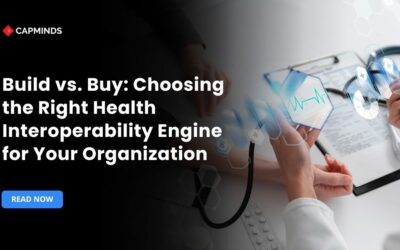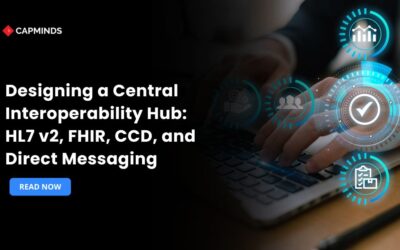Solving Mental Health Practice Challenges: HL7 Integration Made Easy
Integrating HL7 (Health Level Seven) standards into mental health practice can significantly enhance information exchange, care coordination, and overall efficiency.
RELATED: Top 15 HL7 Integration Challenges & Solutions for 2023
However, several challenges need to be addressed to ensure successful HL7 integration in mental health settings. In this blog post, we will explore the top 12 HL7 integration challenges faced by mental health practices and provide solutions to overcome them.
12 Mental Health HL7 Integration Challenges and Solutions
RELATED: Top HL7 Integration Approaches that boosts Your Clinical Productivity & Security
1. Fragmented Systems and Data
Challenge: Mental health practices often rely on separate EHR systems, therapy software, and specialized tools that lack interoperability.
Solution:
- Implement HL7 standards like HL7 v2.x or HL7 FHIR, to establish seamless integration and data exchange between disparate systems
- Use HL7 interfaces and APIs to connect systems and enable the exchange of clinical information
2. Non-Standardized Data Elements
Challenge: Mental health data includes subjective information that may not have standardized data elements in traditional HL7 specifications.
Solution:
- Develop or leverage standardized data models and profiles specific to mental health within the HL7 framework
- Define extensions, data elements, and codes that align with mental health terminologies, ensuring consistency in data exchange
3. Data Security and Confidentiality
Challenge: Mental health data requires heightened privacy and confidentiality protection.
Solution:
- Apply appropriate privacy and security measures within the HL7 integration framework
- Implement strong access controls, encryption, and auditing mechanisms to safeguard mental health data during transmission and storage, adhering to relevant privacy regulations like HIPAA
4. Integrated Care Management
Challenge: Mental health practitioners need to share patient information with primary care providers and other healthcare professionals for coordinated care.
Solution:
- Utilize HL7 standards to enable seamless care coordination and collaboration
- Establish HL7 interfaces or FHIR APIs to exchange relevant patient data between mental health systems and other healthcare systems, improving communication and reducing duplication of efforts
5. Workflow Integration
Challenge: Integrating HL7 into existing mental health practice workflows can be challenging.
Solution:
- Conduct a workflow analysis to identify areas where HL7 integration can be optimized
- Streamline workflows and align them with HL7 messaging or FHIR-based data exchange
- Implement customized HL7 solutions that address specific mental health practice needs and integrate seamlessly with existing systems
6. Data Conversion and Transformation
Challenge: Converting mental health data from various formats to HL7 standards can be complex.
Solution:
- Utilize data mapping and transformation tools to convert data from proprietary formats to HL7 standards
- These tools ensure accurate data representation and facilitate interoperability
7. Standard Compliance
Challenge: Ensuring compliance with HL7 standards and specifications can be demanding.
Solution:
- Stay updated with the latest HL7 standards and specifications
- Engage with HL7 communities and leverage available resources, like implementation guides and reference materials, to ensure compliance during the HL7 integration
8. Training and Education
Challenge: Mental health practitioners and IT staff may require training to understand HL7 standards and their integration.
Solution:
- Offer comprehensive training and educational resources to mental health practitioners and IT staff regarding HL7 standards, including their implementation and benefits
- Conduct workshops, webinars, or internal training sessions to bridge knowledge gaps
9. System Scalability
Challenge: As mental health practices grow, scalability becomes crucial for HL7 integration.
Solution:
- Ensure that the chosen HL7 integration solution can scale with the growing needs of the practice
- Evaluate the system’s capacity to handle increased data volume, user load, and integration requirements
10. Legacy System Integration
Challenge: Integrating HL7 with legacy systems can be challenging due to outdated technologies and data formats.
Solution:
- Employ middleware solutions or integration engines that can bridge the gap between legacy systems and HL7 standards
- These tools facilitate data transformation and communication between old and new systems
11. Quality Assurance
Challenge: Ensuring data integrity and accuracy during HL7 integration can be challenging.
Solution:
- Implement robust quality assurance processes and data validation mechanisms
- Perform thorough testing and validation of HL7 messages to identify and resolve any discrepancies or errors
12. Cost and Resource Allocation
Challenge: HL7 integration may require financial investments and resource allocation.
Solution:
- Conduct a cost-benefit analysis to determine the potential return on investment
- Allocate appropriate resources, including IT personnel and infrastructure, to support HL7 integration efforts
- Consider leveraging open-source HL7 tools like HAPI FHIR to minimize costs
Final Thoughts
Integrating HL7 standards into mental health practice can significantly improve information exchange, care coordination, and patient outcomes.
By addressing challenges like fragmented systems, non-standardized data elements, privacy concerns, and workflow integration, mental health practices can successfully overcome these obstacles and realize the benefits of HL7 integration.
With the right strategies, tools, and resources, mental health practices can achieve seamless interoperability, streamline workflows, and deliver enhanced care to their patients.
HL7 Integration Services from CapMinds
CapMinds Technologies offers the perfect all-in-one Health Interoperability solutions for your mental health clinical needs. Our HL7 FHIR services ease the innovatory exchange to create new possibilities. Our client-centered services keep them in the limelight. Our clinical & HL7 integrations enable EHR-integrated laboratory, imaging, e-prescriptions, EPCS, pharmacy, and much more. These enhance the activation process for your individual and collective needs.
“CapMinds Technologies is the place that will make you achieve your goals by combining “Expertise+Hardwork+Commitment”.
CapMinds FHIR APIs services cover your patients’ health data with the greatest security, privacy, and confidentiality. We update ourselves with the latest versions like HL7 Version 2, Version 3, FHIR, SMART on FHIR, CDA, X12, HAPI FHIR, Mirthconnect, and security standards. CapMinds offers the best HL7 integration and HL7/FHIR interface development services for the federal government, health tech startups, laboratories, clinics, and practices.
“Unite with us to get the most benefits of our HL7 integration services and rise to be the first”




